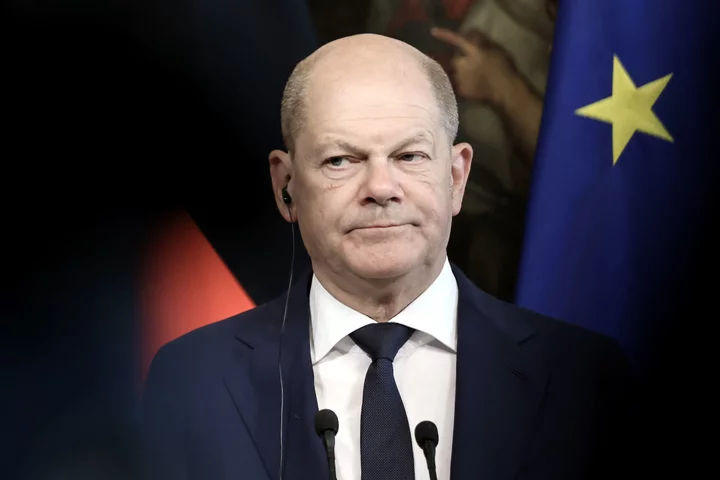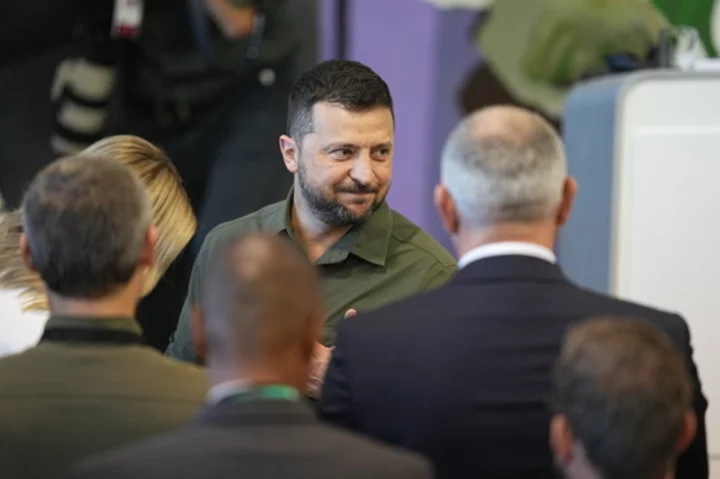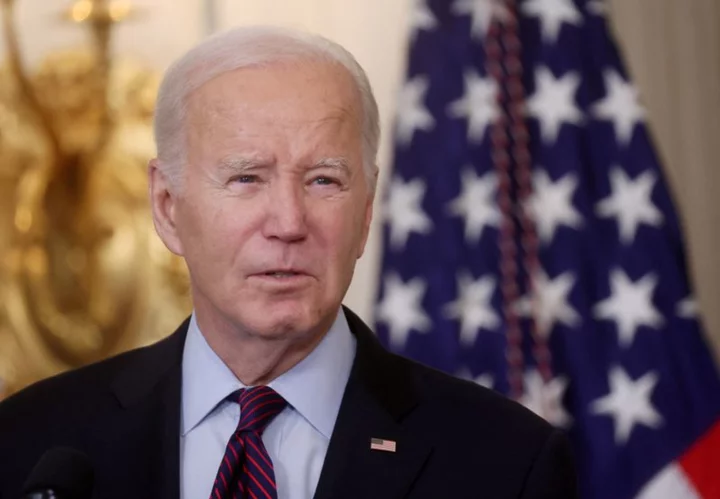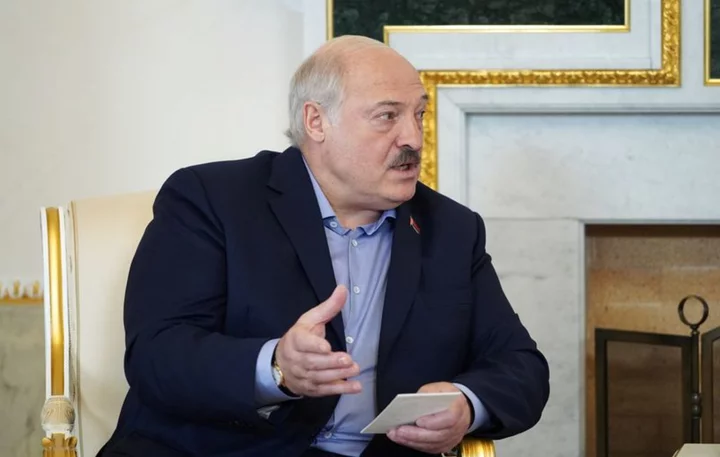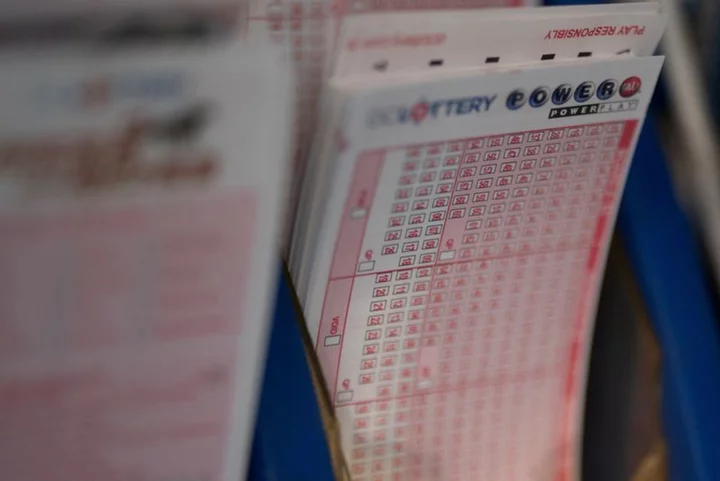German Chancellor Olaf Scholz said his cabinet will pass a national security strategy on Wednesday that’s aimed at boosting the country’s economic resilience.
The strategy, among other things, seeks to reduce one-sided dependencies in areas such as energy, raw materials and critical technologies.
“Our multi-polar world is getting more complex, with many emerging centers of power,” Scholz said Sunday evening at a forum promoting business in eastern Germany. “We have to strive for new partnerships, and that’s what we’re doing.”
Scholz has been prodding businesses for months to seek out new markets, especially in Asia, and avoid an overreliance on China. He’s called on European leaders to accelerate trade talks with countries including Indonesia, India and Mexico.
His admonitions are aimed, in part, on preventing Germany from faltering as Europe’s economic engine. The country needs to quickly diversify both its supply chain for importing key materials as well as its customer base when it comes to selling products like automobiles.
But so far, that’s proved challenging, with bosses from some of Germany’s biggest companies — including Siemens AG and Volkswagen AG - pushing back.
Germany can ill afford a hard break with China, its largest trading partner, with total trade last year of nearly €300 billion ($323 billion), or nearly 8% of the output of Germany’s economy.

